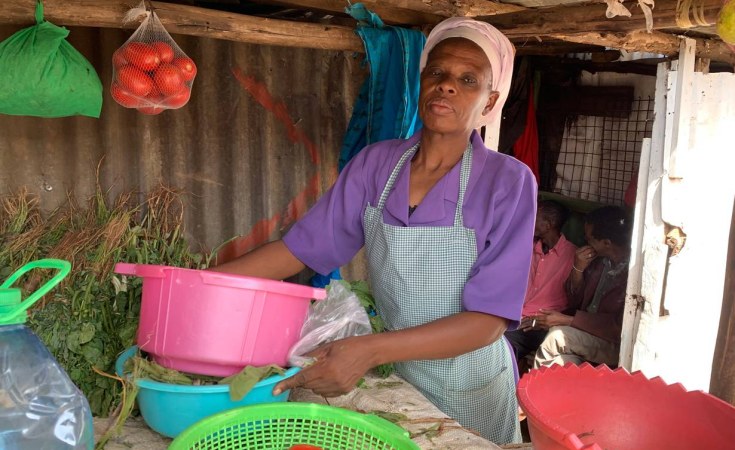Nairobi — The inflation diaries: As Kenyans gear up for an Aug. 9 election, rising food and fuel prices have become a major campaign issue
Neatly laid out on the roadside in Nairobi's bustling Kawangware informal settlement, Florence Kageha's piles of tomatoes, onions and sweet potatoes used to be snapped up by lunchtime each day.
These days, Kageha finds herself trying to dispose of them at dusk, offering them at giveaway prices to passers-by and losing half her weekly earnings of 2,000 Kenyan Shillings ($17) in the process.
"The price of vegetables at the wholesale market has doubled, so I have to sell at double the price, but the customers can't afford it and I end up making a loss," said Kageha, 44, who has spent more than two decades as a trader.
"At home, we don't buy kerosene to cook anymore and use firewood or charcoal as it is cheaper, we eat meat once a month, and we now try to walk instead of using boda bodas (motorcycle taxis)," added the single mother-of-three.
Kageha is one of a growing number of Kenyans who are being forced to make hard choices as rising global energy and food costs triggered by the Ukraine war drive up the cost of the living across the world.
Inflation in the East African country - which is one of the continent's biggest economies - is running at a five-year high of nearly 8% this year, driven by jumps in the price of staples such as wheat flour, cooking oil and petrol.
Kenyan Finance Minister Ukur Yatani has said the rising prices are a short-term problem, adding that the country's economy - forecast to grow 5.5% this year - was strong enough to weather the storm.
UNPRECEDENTED DROUGHT
The country - together with neighbouring Ethiopia and Somalia - is also facing the worst drought in more than 40 years, which is hitting households hard, especially pastoralist families who have lost millions of animals due to the drought.
The United Nations says more than 18 million people across the three countries are struggling to find enough food to eat as a result of four consecutive failed rainy seasons.
In Kenya, 4.1 million people are severely food insecure and acute malnutrition rates in some areas are more than double the emergency threshold, according to the National Drought Management Authority (NDMA).
Not surprisingly, inflation has become a key political issue as Kenyans head to the polls in a hotly contested Aug. 9 presidential and general election.
Political candidates are daily making pledges on their campaign trails - from bringing down inflation within 100 days of being elected to a slew of benefits for poor households.
President Uhuru Kenyatta, who is stepping down after two terms but supporting another candidate, has hiked the monthly minimum wage by 12% to 15,120 Kenyan Shillings ($128) to help workers cope.
Like other central banks across the world, the country's central bank has also moved to curb inflationary pressures by raising interest rates.
The government has also allocated funds to help farmers pay for fertilisers, provided fuel subsidies and is planning to impose a tax waiver on maize imports.
But many Kenyans are still struggling. Earlier this month, hundreds of protesters took to the streets over the spiralling cost of basic commodities such as cooking oil and maize flour, and threatening not to vote in the upcoming ballot.
Mother-of-six Linet Aradi thinks it is all too little, too late.
"Whatever the government is doing, I have not seen any of it," said Aradi, 38, as she stood outside her one-roomed home in Kawangware.
"My children don't complain as I have made them understand but I feel bad. The last time they had meat was four months ago."
($1 = 117.9000 Kenyan shillings)
(Reporting by Nita Bhalla @nitabhalla, Editing by Helen Popper and Hugo Greenhalgh. The Thomson Reuters Foundation is the charitable arm of Thomson Reuters, and covers the lives of people around the world who struggle to live freely or fairly. Visit http://news.trust.org)


